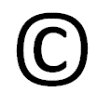I hope you find my writing and business tips and observations useful. My business and blog are dedicated to helping businesses communicate clearly and reach their potential.
Read, subscribe to my newsletter, enjoy!Tash
Digital financial communications
What do you do with the annual reports, product disclosure statements and other disclosure materials you’re sent by banks, super funds and similar organisations?
Hard copy rubbish
If you’re like many people, you put them in the recycling (or normal) bin – possibly without even reading it first.
This is annoying because
- it is a waste of paper and thus a burden on the environment
- it is a waste of money to print and mail the documents – and guess who pays for that waste?
Going digital
 A few years ago, legislation changed so that financial instructions can send some disclosure information electronically. That could be as an email attachment, an email linking to an online resource or even an SMS containing a link.
A few years ago, legislation changed so that financial instructions can send some disclosure information electronically. That could be as an email attachment, an email linking to an online resource or even an SMS containing a link.
However, the super funds and banks could only do this if you consented to getting it electronically.
New digital rules
Under a new ASIC guidance, financial organisations in Australia can send disclosure materials to their customers/members by default.
That is, they will need to notify customers/members that “certain information will be provided by {explain electronic method} unless you opt out within 7 days of this notice.”
So once such organisations set up this notification and opt out system, we can all expect to receive such notices and then get fewer hard copy disclosure materials.
Going back to my first question – do you keep hard copies of such materials? If so, will you opt out of electronic communications now there is a clear choice?
If you were a financial organisation, would you swap to sending digital communications instead of hard copies?
who owns the copyright?
Although I am not a lawyer and copyright is a complex area of law, I get a number of questions about copyright. Recently, I was asked about the ownership of content when a contractor writes something for a business and which entity would be listed in a copyright notice.
 Generally, if you create something you own the copyright unless you assign it (in writing with a signature) to someone else. So if your agreement with a client doesn’t specify otherwise, you own the copyright in general terms.
Generally, if you create something you own the copyright unless you assign it (in writing with a signature) to someone else. So if your agreement with a client doesn’t specify otherwise, you own the copyright in general terms.
You can assign a client the copyrights to use the material in certain ways – but perhaps limit them from owning other rights (e.g. international or movie rights) There does not have to be an exchange of money to exchange copyright – but it is something worth setting a price for commercially. Once you assign copyright to them, they own the copyright on the material under those stated conditions and thus only they would be on any copyright notice.
If you are an employee or a contractor under certain circumstances, the company owns copyright even if you are the creator. For contractors, this usually includes an agreement or expectation between you and the company, and may apply if they have initiated the work and paid you for all your time working on the project.
If a client owns the copyright, they don’t have to include your name in a copyright notice; if you own it, it is more likely that your notice would state ‘copyright owned by Justine and assigned to XYZ’ or equivalent.
Note that you will ALWAYS own the moral rights to the materials as these can not be bought or given away. This means that they can not represent the work in way that is negative towards you, deny it is written by you or adjust it and still call it yours.
When preparing a quote and agreement for companies, take copyright into consideration. Some of the things I write are useless to me anyway (e.g. a resume for someone else) so copyright isn’t worth fussing about, but if I write an article then copyright becomes a bigger issue and I charge more to give the other party full copyright over it.
Who owns copyright and how it is publicly presented depends upon the arrangement between you and a specific client. And not being a lawyer, I can’t give you a definitive answer but hopefully the above helps. Try www.copyright.org.au and get a copyright lawyer’s details from them if copyright becomes an issue for you.

Recent Comments